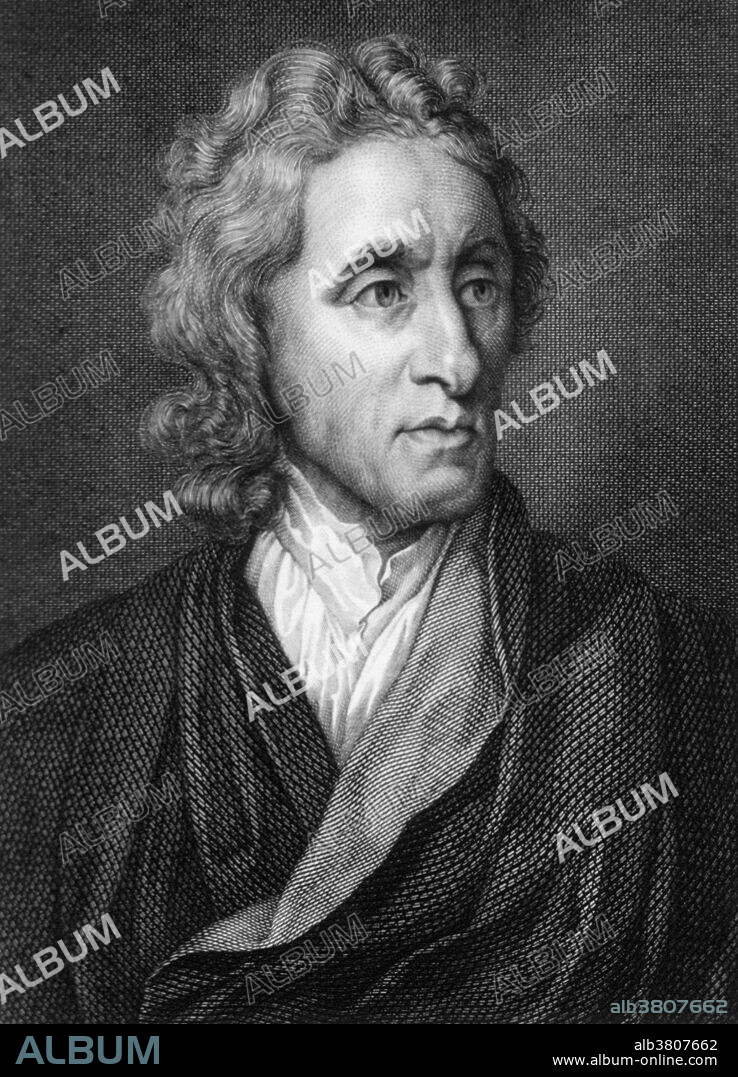alb3807662
John Locke, English Philosopher, Father of Classical Liberalism

|
Añadir a otro lightbox |
|
Añadir a otro lightbox |



¿Ya tienes cuenta? Iniciar sesión
¿No tienes cuenta? Regístrate
Compra esta imagen.
Selecciona el uso:

Título:
John Locke, English Philosopher, Father of Classical Liberalism
Descripción:
Traducción automática: John Locke (1632-1704) fue un filósofo y médico inglés y uno de los pensadores más influyentes de la Ilustración. Fue uno de los primeros empiristas británicos y es importante para la teoría del contrato social. Su trabajo tuvo un gran impacto en el desarrollo de la epistemología y la filosofía política. Sus escritos influyeron en Voltaire y Rousseau. Sus contribuciones al republicanismo clásico y la teoría liberal se reflejan en la Declaración de Independencia de los Estados Unidos. La teoría de la mente de Locke se cita a menudo como el origen de las concepciones modernas de la identidad y el yo. Locke fue el primero en definir el yo a través de una continuidad de la conciencia. Postuló que la mente era una pizarra en blanco o tabula rasa. Creía que nacemos sin ideas innatas y que el conocimiento está determinado por la experiencia derivada de la percepción sensorial. Locke nunca se casó ni tuvo hijos. Murió a la edad de 72 años.
John Locke (1632-1704) was an English philosopher, physician and one of the most influential of Enlightenment thinkers. One of the first of the British empiricists he is important to social contract theory. His work had a great impact upon the development of epistemology and political philosophy. His writings influenced Voltaire and Rousseau. His contributions to classical republicanism and liberal theory are reflected in the American Declaration of Independence. Locke's theory of mind is often cited as the origin of modern conceptions of identity and the self. Locke was the first to define the self through a continuity of consciousness. He postulated that the mind was a blank slate or tabula rasa. He believed we are born without innate ideas, and that knowledge is instead determined by experience derived from sense perception. Locke never married nor had children. He died at the age of 72.
Crédito:
Album / NLM/Science Source
Autorizaciones:
Modelo: No - Propiedad: No
¿Preguntas relacionadas con los derechos?
¿Preguntas relacionadas con los derechos?
Tamaño imagen:
2776 x 3852 px | 30.6 MB
Tamaño impresión:
23.5 x 32.6 cm | 9.3 x 12.8 in (300 dpi)
Palabras clave:
ARTE • BLANCO Y NEGRO • CIENCIA • DIBUJO • EUROPEA • EUROPEAS • EUROPEO • FAMOSA • FAMOSO • FIGURA • FILOSOFIA • FILOSOFO • GENTE • GRABADO • HISTORIA • HISTORICO • HOMBRE • HOMBRES • ILUSTRACION • IMPORTANTE • INGLES • JOHN LOCKE • MASCULINO • METAFISICA • OBRA DE ARTE • PACTO SOCIAL • PERSONA • PERSONALIDAD • PERSONALIDADES • PORTRAIT • RETRATO DE HOMBRE • RETRATO • SIGLO XVII
 Pinterest
Pinterest Twitter
Twitter Facebook
Facebook Copiar enlace
Copiar enlace Email
Email
